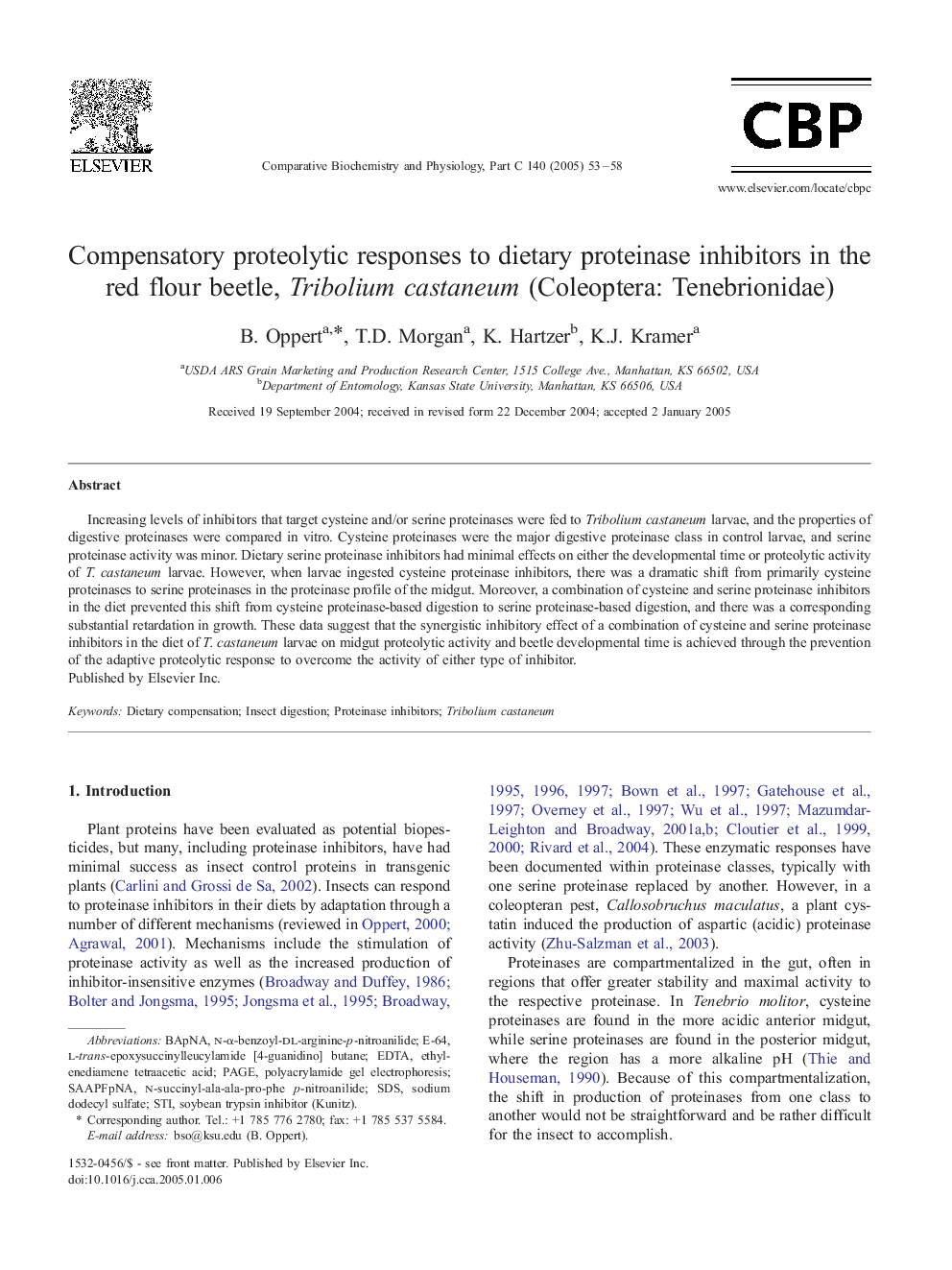| Article ID | Journal | Published Year | Pages | File Type |
|---|---|---|---|---|
| 10821824 | Comparative Biochemistry and Physiology Part C: Toxicology & Pharmacology | 2005 | 6 Pages |
Abstract
Increasing levels of inhibitors that target cysteine and/or serine proteinases were fed to Tribolium castaneum larvae, and the properties of digestive proteinases were compared in vitro. Cysteine proteinases were the major digestive proteinase class in control larvae, and serine proteinase activity was minor. Dietary serine proteinase inhibitors had minimal effects on either the developmental time or proteolytic activity of T. castaneum larvae. However, when larvae ingested cysteine proteinase inhibitors, there was a dramatic shift from primarily cysteine proteinases to serine proteinases in the proteinase profile of the midgut. Moreover, a combination of cysteine and serine proteinase inhibitors in the diet prevented this shift from cysteine proteinase-based digestion to serine proteinase-based digestion, and there was a corresponding substantial retardation in growth. These data suggest that the synergistic inhibitory effect of a combination of cysteine and serine proteinase inhibitors in the diet of T. castaneum larvae on midgut proteolytic activity and beetle developmental time is achieved through the prevention of the adaptive proteolytic response to overcome the activity of either type of inhibitor.
Keywords
Related Topics
Life Sciences
Biochemistry, Genetics and Molecular Biology
Biochemistry
Authors
B. Oppert, T.D. Morgan, K. Hartzer, K.J. Kramer,
